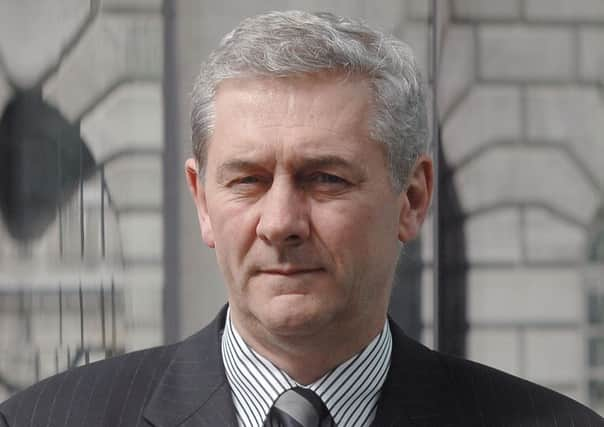Why talk to paramilitaries rather than arrest them, PSNI asked


John McBurney, the joint-author of this week’s report on disbanding paramilitary groups, last night put fresh pressure on the police to explain why they do not always enforce the law by charging those they know to be senior figures in illegal organisations.
The solicitor told the News Letter that the police attitude to some such individuals was enhancing paramilitary leaders’ status in their areas and persuading some members of the public to go to those individuals requesting punishment beatings or shootings.
Advertisement
Hide AdAdvertisement
Hide AdMr McBurney said that 18 years after the “settlement” of the Belfast Agreement, there was no rationale for the continued existence of paramilitary groups.
“In that context, you have police officers on a regular basis engaging with those who are in leadership of these residual paramilitary groups.
“Why is that felt appropriate?
“Why is it felt necessary?
“As leaders and as members of such paramilitary groups, those individuals could be charged with the criminal offence of membership of a proscribed organisation.
“They are not so charged – even when they advance themselves as representing those organisations.
Advertisement
Hide AdAdvertisement
Hide Ad“If we are to move to a position where paramilitarism is behind us as a society, that type of engagement cannot rest easily with a culture of lawfulness and respect for the rule of law.
“That seems to be a very simple, straightforward proposition.
“It may hinder instant solutions to localised problems. But those instant repairs to local issues have a seriously adverse impact on the rule of law and the development of a culture of lawfulness.”
Mr McBurney said that there had to be strict protocols in place about contact with paramilitaries “otherwise you are engaging with individuals who are effectively leading criminal proscribed groupings and you are engaging with them because of their seniority within those groupings.
Advertisement
Hide AdAdvertisement
Hide Ad“If they have not a degree of seniority within those groups, then the engagement is pointless. And if they have a degree of seniority, then the engagement is extremely difficult – if not dangerous – because they can be charged themselves with membership of the various groups you are engaging with.
“That cannot be a situation that continues year after year if we are to preserve and enhance the rule of law.”
He added: “When police officers are seen to be engaging in this regular dialogue with paramilitary leaders in order to get solutions, it’s not surprising that some frustrated people in the community see a situation where going to those individuals may bring about different solutions to problems and those solutions are intolerable [because] they involve violence which has to be condemned.”
On Tuesday, PSNI Assistant Chief Constable Stephen Martin responded to the report by Mr McBurney’s group by saying: “The police service is prepared to engage with those who can constructively assist us in keeping people safe. We are also committed to investigating and pursuing those involved in crime.”
Advertisement
Hide AdAdvertisement
Hide AdHowever, Mr McBurney said that although the PSNI were sometimes able to resolve issues quickly by talking to paramilitaries, the wider effects of the policy were seriously damaging to the rule of law.
Group unable to meet with the PIRA leadership
John McBurney has defended the fact that the Provisional IRA is mentioned just once in the report – despite the fact that it was allegations of IRA involvement in murder which led to the report being commissioned.
“In circumstances where the Provisional IRA claimed to have gone away and not to be coming back, it shouldn’t be surprising that meetings could not be organised with leadership of a continuing PIRA movement.”
He added: “The [October] paramilitary assesment report has indicated the extent of what remains of the PIRA entity. Senior former mainstream republicans with a militaristic background indicated to us that any continued existence of a Provisional Army Council would be damaging and counter productive to moving forward with a wholly peaceful and political endeavour.
Advertisement
Hide AdAdvertisement
Hide Ad“That seems to be a rational position and clearly if a view was formed that the PIRA had effectively disbanded, it is not likely that anyone from that direction and formerly involved would challenge that assertion. That can of course be put to the test.”
The report’s other authors were former Alliance leader Lord Alderdice and former chief human rights commissioner Monica McWilliams.